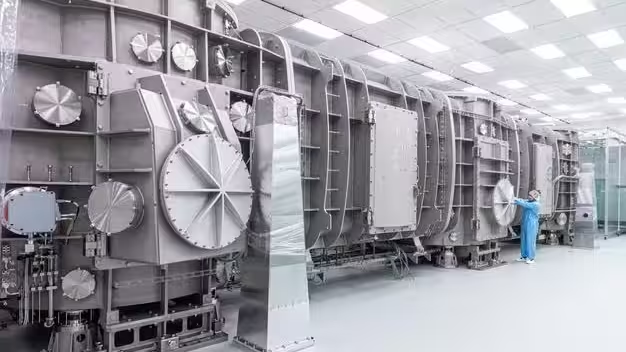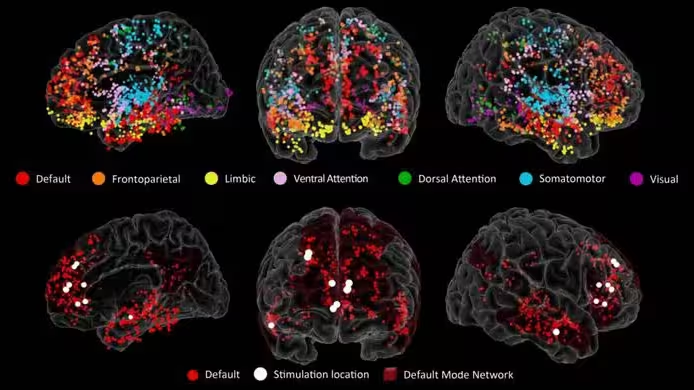Texas Heart Institute surgeons have successfully implanted a BiVACOR Total Artificial Heart in a human for the first time.
From The Texas Heart Institute 30/07/24

Houston, Texas, July 25, 2024 – The Texas Heart Institute (THI) and BiVACOR®, a clinical-stage medical device company, announced today the successful first-in-human implantation of the BiVACOR Total Artificial Heart (TAH) as part of the U.S. Food and Drug Administration (FDA) Early Feasibility Study (EFS) on July 9, 2024.
BiVACOR’s TAH is a titanium-constructed biventricular rotary blood pump with a single moving part that utilizes a magnetically levitated rotor that pumps the blood and replaces both ventricles of a failing heart.
The first-in-human clinical study aims to evaluate the safety and performance of the BiVACOR TAH as a bridge-to-transplant solution for patients with severe biventricular heart failure or univentricular heart failure in which left ventricular assist device support is not recommended.
Following this first implantation completed at Baylor St. Luke’s Medical Center in the Texas Medical Center, four additional patients are to be enrolled in the study.
“The Texas Heart Institute is enthused about the groundbreaking first implantation of BiVACOR’s TAH.
With heart failure remaining a leading cause of mortality globally, the BiVACOR TAH offers a beacon of hope for countless patients awaiting a heart transplant,” said Dr. Joseph Rogers, President and Chief Executive Officer of The Texas Heart Institute and National Principal Investigator on the research.
“We are proud to be at the forefront of this medical breakthrough, working alongside the dedicated teams at BiVACOR, Baylor College of Medicine, and Baylor St. Luke’s Medical Center to transform the future of heart failure therapy for this vulnerable population.”
Daniel Timms, PhD, Founder and Chief Technology Officer of BiVACOR said, “I’m incredibly proud to witness the successful first-in-human implant of our TAH.”
“This achievement would not have been possible without the courage of our first patient and their family, the dedication of our team, and our expert collaborators at The Texas Heart Institute.”

“Utilizing advanced MAGLEV technology, our TAH brings us one step closer to providing a desperately needed option for people with end-stage heart failure who require support while waiting for a heart transplant.”
“I look forward to continuing the next phase of our clinical trial.”
Heart failure is a global epidemic affecting at least 26 million people worldwide, 6.2 million adults in the U.S., and is increasing in prevalence.
Heart transplantations are reserved for those with severe heart failure and are limited to fewer than 6,000 procedures per year globally.
Consequently, the U.S. National Institutes of Health estimated that up to 100,000 patients could immediately benefit from mechanical circulatory support (MCS), and the European market is similarly sized.
The successful implantation of BiVACOR’s TAH highlights the potential of innovative technologies to address critical challenges in cardiac care, such as long transplantation waitlists.
BiVACOR and The Texas Heart Institute remain committed to advancing the field of cardiac medicine and improving outcomes for patients worldwide.
More info
You may also be curious about:
-

Parkwind achieve world-first offshore charging for electric vessels
-

Cook like a Neanderthal: Scientists learn how they ate birds
-

Is a gamma-ray laser possible?
-

Kawasaki demo hydrogen-burning motorbike
-

New car smell reaches toxic levels on hot days
-

Airbus hybrid high-speed helicopter hits 420 km/h in demo
-

Male elephants signal ‘let’s go’ with deep rumbles
-

Rolls-Royce awarded funding for space nuclear power
-

Biodegradable electronics with ability to control dissolve rate
-

Same workout, different weight loss: Signal molecule versions are key
-

Deep-ocean floor produces its own oxygen
-

Study pinpoints origins of creativity in the brain
